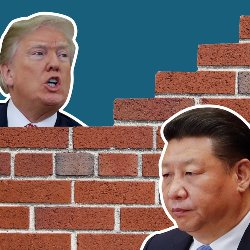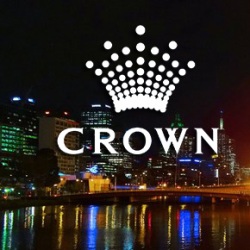Would a US Trade War with China Impact its Asian Casino Interests?

President Donald Trump has already imposed $50 billion in tariffs on Chinese goods, and is currently threatening to increase that figure to $450 billion, accusing the East Asian country of technology theft and unfair trade practices. In the meantime, China has said that it would retaliate against such measures by placing tariffs on $50 billion worth of US goods, in the process adding further fuel to the trade war brewing between the two countries.
An economic war between the world’s two biggest trading nations has the potential to spill over into a whole range of different industries, too, with US owned casinos in Asia counted amongst those most at risk from collateral damage. Needless to say, the world’s biggest casino firm, Las Vegas Sands Corp, would suffer the greatest pain from such a scenario, in the process putting at risk billions of dollars in assets built up by the company, as well as other US casino operators, in Macau.
Chinese Tourist Dollars
A soft power tool China has in its armory is the ability to control the country’s tourist industry, and specifically where its citizens are permitted to travel and spend their money. By rewarding friends and punishing its enemies, Beijing wields a highly fluid instrument that allows it to steer Chinese tourist spending and push its political and economic policy agendas.
Chinese tourist numbers to the US reached 2.2 million in 2017, making them the fifth largest group to visit the country. While a reduction in Chinese visitors to the US would have a limited impact on business, the same cannot be said if China decided to limit access to Macau, where mainland Chinese account for 90% of total gaming revenue. This is not too far fetched a scenario, either, considering Beijing’s clampdown on the island resort’s tourist and gambling industry from 2013 to 2016.
Filipino Example
China has long used its considerable economic power to influence the behavior of other countries that it deems to be either “hot”, “warm” or “cold” partners. When former Philippines President Benigno Aquino II took China to the Permanent Court of Arbitration in The Hague over a dispute concerning territorial waters in the South China Sea, for instance, China refused to become part of the process.
Moreover, it immediately retaliated by banning its citizens from traveling to the Philippines, as well as the country importing its mangoes into China, a major Filipino export, and the world’s third most important export fruit, after pineapples and bananas.
After coming to power in 2016, Rodrigo Duterte subsequently quickly reversed direction, spoke out against “American hegemony” in the region, and announced a new level of cooperation with China over its territorial waters claims. Once the travel ban was lifted, Chinese tourist visiting the Philippines subsequently jumped by 43% to 968,477 in 2017, unseating US as the country’s number one visiting group.
In addition, Philippine gambling revenue spiked by 14% to reach an all-time high of $3.28 billion in 2017, and for the first quarter of 2018, Chinese visitor numbers are already higher by an incredible 55%.
Hitting US Interests
While US firms with manufacturing and exporting operations in China would be the first businesses in the firing line during a full blown trade war, casino companies in Macau and Singapore are now increasingly being viewed as legitimate targets for retaliation, especially considering Las Vegas Sands CEO Sheldon Adelson’s close ties to President Donald Trump.
Attempts could be made to disrupt custom to Sands, as well as Wynn Resorts and MGM Resorts International properties, for instance, whilst granting Beijing plausible deniability. As Shaun Rein, China Market Research Managing Director, explains:
“It is possible they will ratchet up police surveillance of his [Adelson’s] Macau properties in order to spread fear among high rollers and even middle-class gamblers that they are being checked in on by the authorities. Or they will launch an audit of their books. Either way, a move could be viewed as having plausible deniability that the government cloaks as a crackdown on corruption or tax evasion, as they did against Lotte in China’s battle with South Korea.”
A cautionary example can be gleaned from a similar situation that occurred after Chinese President Xi Jinping launched his anti-corruption campaign in 2013, ultimately resulting in a 26-month downturn in Macau’s gambling revenues that cost the industry $17 billion. Overall, revenues plummeted by an astounding 38% from their peak during this period, although Beijing was quick to point out that the clampdown was not specifically targeted at US casino interests.
Finally, Sands, MGM and Wynn all hold gambling licenses in Macau which are due to expire a few years from now, representing yet another piece of leverage China can hold over the US in the event of a trade war continuing to escalate.








